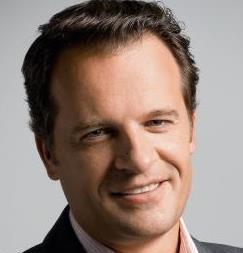To answer the complex questions of tomorrow, business creativity is a vital skill

Business creativity is an essential skill needed to be able to respond to the challenges of tomorrow, according to Pascale Julicher, head of marketing and communications for the Benelux at AIG, and Marjanne Cuypers, founder of innovation consultancy firm BlueBlocks.
Normally the word creativity is associated with an artist or a child that is allowed to be creative in class. But business creativity is different. “Creativity in a business environment is about problem solving and looking at things in a new light. It is one of the distinctive competencies in the current complex business environment,” explains Julicher.
“Risk and insurance managers need to solve all kinds of problems. To do so, they can of course fall back on methods they have used before or that are common knowledge, but the question is whether those will enable them to answer the complex questions of tomorrow.”
She adds the success of risk and insurance managers also depends on their ability to stand out within their organisation and to get their subject on the right agendas. “The key competence for this is creativity – if you can be creative within the business environment, then you can stand out.”
Research into how creative problem solving works has shown that it is a fairly analytical approach, where one uses techniques to help their brain to solve problems in a different way without losing sight of that complex context.
During today’s annual congress of the Dutch risk and insurance management association (NARIM), Julicher and Cuypers will be sharing several tips for risk and insurance managers to improve their own business creativity.
People’s brains are trained to look for the right answer, Cuypers says, so if you ask a certain question, then the brain will look for successful routes or for solutions that have proven successful in the past. It will then compare those with the new situation, so you end up trying to solve completely new problems with adjusted existing solutions.
“So if you are looking for a completely new solution, you will have to ask yourself a new question. Our brains are very sensitive to the choice of words, so asking the same questions with different nuances in word choice will make your brain respond differently,” Cuypers notes.
Furthermore, creative thinking is a skill, so it becomes easier with regular practice. Cuypers says: “One of the basic skills is flexible association, which means your brain can divert from a set way of thinking and recurring patterns and is able to create a new pattern. Because in essence a new idea is nothing more than a new combination between two previously unlinked pieces of information.”
She suggests a daily one-minute exercise, where you take two unconnected objects at random, such as a pen and an elastic band, and try to combine them to one new product. “It is a very simple exercise, but it trains your brain to become very flexible in creating new combinations which seem arbitrary. ‘Creativity is the power to connect the seemingly unconnected’ South African author William Plomer once said, so all creative solutions are never completely new; it’s just a matter of making new combinations of previously unlinked elements.”














No comments yet